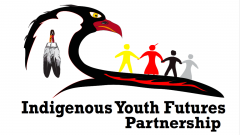The Indigenous Youth Futures Partnership
Bringing together Indigenous and Western Approaches to Promote Youth Resilience and Prosperity in First Nations Communities
A 7-year Program of Partnered Research
The goal of this research partnership is to foster Indigenous youth resilience and to empower youth to prosper as leaders in their communities. Following the lead of First Nations communities in Northwestern Ontario, we will build on each community’s strengths, act on their priorities, and facilitate the mobilization of resources to advance and sustain a positive community- and family-centric foundation for youth.
The program of research is supported by a Social Sciences and Humanities Research Council Partnership Grant, and the Mitacs Indigenous Communities Engagement initiative.
Background
Indigenous youth are the fastest growing population in Canada, and their success is integral to the future leadership and productivity of their communities and of the nation. As is evident in the report of the Truth and Reconciliation Commission, Indigenous communities are working toward ways to build on community strengths, promote cultural continuity and learning across generations, generate sustainable livelihoods, and encourage resilience, particularly among children, youth, and families. To achieve reconciliation, it is also incumbent on non-Indigenous Canadians to understand how to contribute to the healing and growth of Indigenous peoples.
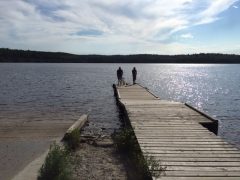 After over a century of colonialist actions and policies to eradicate Indigenous cultures and identity, the challenges are considerable. Substantial changes to the land and environments that are so integral to Indigenous well-being, are also occurring because of climate change and resource development. Together, these factors mean that the challenges and opportunities for the well-being and future prospects of Indigenous youth are significant. The need to provide youth with a healthy personal, social, cultural, and economic foundation is critical to their success.
After over a century of colonialist actions and policies to eradicate Indigenous cultures and identity, the challenges are considerable. Substantial changes to the land and environments that are so integral to Indigenous well-being, are also occurring because of climate change and resource development. Together, these factors mean that the challenges and opportunities for the well-being and future prospects of Indigenous youth are significant. The need to provide youth with a healthy personal, social, cultural, and economic foundation is critical to their success.
Who We Are
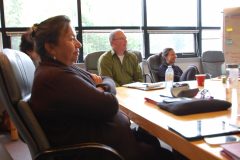 Our team includes Indigenous and non-Indigenous community-based and academic researchers from Northwestern Ontario and from research institutions across Canada. We represent multiple disciplinary approaches, including art history, business and entrepreneurship, education, health geography, Indigenous studies, library sciences, medicine, neuroscience, psychology, public policy and administration, and social work. We are working in partnership with cultural, economic, education, family, health, and social services organizations in the region.
Our team includes Indigenous and non-Indigenous community-based and academic researchers from Northwestern Ontario and from research institutions across Canada. We represent multiple disciplinary approaches, including art history, business and entrepreneurship, education, health geography, Indigenous studies, library sciences, medicine, neuroscience, psychology, public policy and administration, and social work. We are working in partnership with cultural, economic, education, family, health, and social services organizations in the region.
Our Approach
We are adopting a holistic approach to community health and youth well-being. Together, we offer considerable experience working together with communities in the Nishnaabe Aski Nation (NAN), along with a broad range of research tools that have been applied to
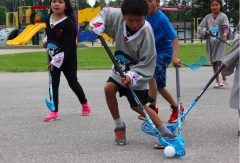 (1) encourage youth empowerment and well-being,
(1) encourage youth empowerment and well-being,
(2) build resilience and supportive relationships within communities,
(3) facilitate economic development and good governance, and
(4) ensure that the voices of communities are at the forefront of such initiatives, and researchers understand how to respect and privilege each community’s ways of knowing throughout the process.
This range of experience, practices, and expertise means that by working together, communities have a rich base to draw from in order to define their own pathways to foster youth resilience and youth’s ability to ‘live a good life’. Together, we will identify their assets, strengths, and priorities, co-develop programs and strategies for change, and to implement and evaluate these efforts.
Our Values
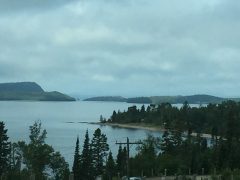 We are committed to community capacity-building, the sustainability of change, and ensuring the availability of resources, skills, and strategies for program implementation and evaluation. Core to our activities is a respect for Indigenous worldviews (e.g., stories, family and community values) that will define the research directions, decision-making structures (engaging youth, elders, and community advisory councils), and knowledge sharing (open sharing of information, collective interpretations, creation of assets that help share what is learned with other communities).
We are committed to community capacity-building, the sustainability of change, and ensuring the availability of resources, skills, and strategies for program implementation and evaluation. Core to our activities is a respect for Indigenous worldviews (e.g., stories, family and community values) that will define the research directions, decision-making structures (engaging youth, elders, and community advisory councils), and knowledge sharing (open sharing of information, collective interpretations, creation of assets that help share what is learned with other communities).
Our Aspirations
In doing this research, we hope that we see positive changes for youth in their communities. We believe that the research will also help us to develop wise practices for achieving change in other Indigenous communities, contribute to policy recommendations that support positive change, and help communities continue to develop their own evidentiary basis for effective programing and advocating for change.
Read more about this project here.
Attributions
Ariel Root: Banner photo; hockey photo
Kim Matheson: Dock photo; lake photo
Katherine Graham: Meeting photo
Logo designed by Rodney Nelson

